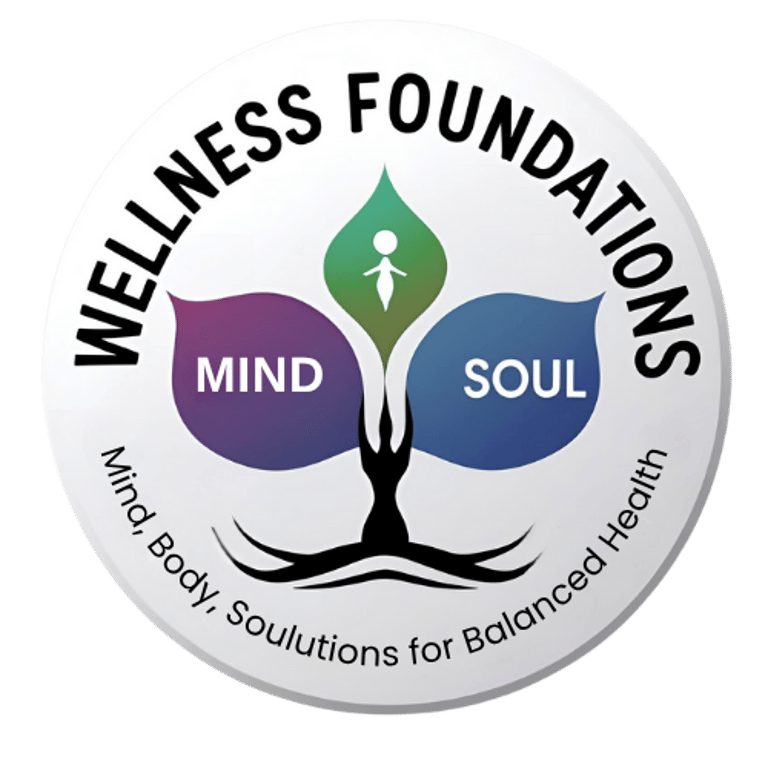The 8-Minute Daily Practice That Changed Everything
You perfect your morning routine, but are you preparing your mind for the day? This 8-minute daily practice combining gratitude and forgiveness literally rewired my brain—and the science backs it up. Learn how these two simple tools can decrease anxiety by 30%, improve sleep, boost happiness, and free you from the weight of past hurts. Includes practical step-by-step guides and research from Harvard Medical School, Stanford's Forgiveness Project, and leading neuroscientists.
Kathy Best-Gibson, ILC, CRM, CNTP
11/7/20255 min read


Let's be real: most of us have our morning routine down to a science. Skincare? Check. Outfit curated? Check. Coffee order memorized? Absolutely. But here's the thing nobody talks about: we're spending more time on our external appearance than on our internal landscape, the place where our actual life experience is being created.
I want to help you shift from just getting through the day to actually thriving. Imagine waking up with genuine confidence, feeling connected to yourself and others, and knowing you have the power to shape your experience. Not in a toxic positivity way, but in a grounded, science-backed way.
Your Mind Deserves a Morning Routine Too
Think about it: you probably spend 30-60 minutes getting physically ready each day. What if you invested even 10 minutes preparing your mental and emotional state? Your thoughts, beliefs, and feelings are literally constructing your reality moment by moment. This isn't just spiritual talk—neuroscience backs this up.
Neuroscientist Dr. Joe Dispenza explains that our repeated thoughts create neural pathways that become our automatic patterns. Author and researcher Gregg Braden, a pioneer in bridging science and spirituality, has extensively documented how our internal state influences our external reality. The science is clear: what we focus on actually rewires our brain.
Tool #1: Gratitude (But Make It a Practice, Not Just a Vibe)
Here's your practice: spend 3 minutes every night before bed identifying:
5 things/people in your personal life you're grateful for
5 things/people in your professional life you're grateful for
5 things about yourself you appreciate
Can't think of 15 things from today? Go back to yesterday, last week, or last month. The key is spending the full 3 minutes actually feeling the gratitude, not just listing items.
The Science:
Research from Harvard Medical School and UC Berkeley's Greater Good Science Center has found that consistent gratitude practice delivers measurable benefits:
Elevates happiness - Studies show a 10% increase in overall life satisfaction
Increases energy - Participants report feeling more vitality and alertness
Decreases depression and anxiety - Reduces symptoms by up to 30% in some studies
Improves sleep quality - People fall asleep faster and sleep longer
Decreases physical pain - Including reduction in headaches and chronic pain
Strengthens relationships - Increases prosocial behavior and deepens connections
Psychologist Dr. Robert Emmons, the world's leading gratitude researcher, found that people who kept gratitude journals exercised more regularly, reported fewer physical symptoms, and felt better about their lives as a whole. Dr. Brené Brown also emphasizes gratitude as a key component of resilience and joy in her research on vulnerability and wholehearted living.
Tool #2: Forgiveness (The Ultimate Act of Self-Care)
Let's clear something up: forgiveness isn't about letting toxic people back into your life or excusing harmful behavior. It's about releasing the grip that past events have on your present moment. When you hold onto resentment, anger, or pain, the only person you're hurting is yourself.
Think about it: that person who wronged you probably isn't thinking about you right now. But you're carrying them around in your mind, letting them influence your mood, your health, and your capacity for joy. That's giving them way too much power.
The Science:
Research from Johns Hopkins Medicine, the Mayo Clinic, and Stanford's Forgiveness Project has documented significant benefits:
Increased happiness and life satisfaction
Reduced physical pain - Including chronic back pain
Improved cardiovascular health - Lower blood pressure and heart rate
Decreased hostility and aggression
Enhanced ability to trust others
Increased capacity for love and empathy
Freedom from rumination - Breaking the cycle of replaying past events
Improved mental health - Reduced depression, anxiety, and PTSD symptoms
Better physical health markers - Improved immune function
Support for healthy behaviors - Including weight management
Dr. Fred Luskin, director of the Stanford Forgiveness Projects, has documented how forgiveness literally changes our physiology, reducing stress hormones and improving heart health. Psychologist Dr. Kristin Neff's work on self-compassion also intersects here—forgiving others often starts with forgiving ourselves.
The Practice:
Set aside 5-10 minutes daily. Here's the framework:
Create a safe space - Imagine a neutral environment. If it helps, visualize a supportive presence with you (a trusted friend, guide, or protective energy).
Confront (1-2 minutes) - Picture the person who hurt you. Let it out. Yell, scream, express your anger, pain, and frustration at their image. This isn't about them hearing you; it's about you releasing what you've been carrying.
Perspective shift (1 minute) - Take a breath. Consider: What might have happened to them? Were they hurt in similar ways? Are they operating from their own unhealed trauma? You're not excusing them—you're just trying to see them as a flawed human.
Release (1 minute) - Look them in the eyes and say: "I forgive you. I don't condone what you did, but I release your hold on me. I wish you well and set you free."
Start small. Begin with minor irritations—the barista who was rude, the driver who cut you off—and work up to bigger wounds. It gets easier with practice, I promise.
Why I'm So Passionate About This
I'll be straight with you—I didn't start these practices because I had it all figured out. I started because I was exhausted from carrying around years of resentment and going through life on autopilot. I was physically healthy, but constantly getting the latest bug going around. I was a single mom, struggling financially and emotionally I was a mess. I was running on empty.
When I first committed to these 8 minutes daily, I was skeptical. The gratitude practice felt forced at first—some days I really had to dig deep to find things to appreciate. And forgiveness? That felt impossible. There were people I was convinced I'd never be able to forgive, wounds I thought were too deep.
But something shifted around week three. I started sleeping better. The constant background anxiety I'd normalized for years began to quiet down. I noticed I was more patient with people, more present in conversations. The relationships that mattered got deeper, and the ones that were draining me naturally fell away or shifted in some surprising way. I stopped replaying past hurts and fears on a loop in my mind.
The most profound change? I realized I'd been giving away my power for years—to people who hurt me, to circumstances beyond my control, to stories I kept telling myself about who I was and what I deserved. These practices gave me that power back.
I started this with 8 minutes a day, but it became something that evolved into a deeper, more profound practice from me. I took training in “Ho’oponopono,” the art of forgiveness developed by Hawaiian Elders and that practice along with some other simple tools really transformed every area of my life.
I became a life coach to support others in creating long-term benefits that far exceed the investment. Because if 8 minutes a day could create this kind of transformation in my life, I knew it could do the same for others.
The Bottom Line
You don't need to completely overhaul your life to see results. Just 8-10 minutes a day practicing these two tools can create measurable shifts in your wellbeing. This isn't about perfection or forced positivity—it's about giving yourself the same care and attention you give your external presentation.
Try it for 30 days and notice what changes. The research suggests you'll likely see improvements in your mood, relationships, physical health, and overall sense of agency in your life. And honestly? You deserve to feel that good.
Ready to Go Deeper?
While these tools are powerful on their own, having support and accountability can accelerate your transformation exponentially. If you're feeling called to take this work to the next level, I'd love to support you through one-on-one life coaching.
Together, we can:
Create personalized practices that fit your unique life and challenges
Work through the deeper blocks that keep you stuck
Build sustainable habits with consistent accountability
Navigate the tough forgiveness work when it gets challenging
Design a roadmap for the life you actually want to live
Sometimes we need a guide, a mirror, and a champion in our corner. If that resonates with you, let's connect. Reach out to explore how coaching could support your journey from just surviving to genuinely thriving.
Want to dive deeper into how our internal state shapes reality? Check out Gregg Braden's work on the science of belief and Dr. Joe Dispenza's research on neuroplasticity. For more on gratitude, explore Dr. Robert Emmons' research, and for forgiveness studies, visit Stanford's Forgiveness Project.


